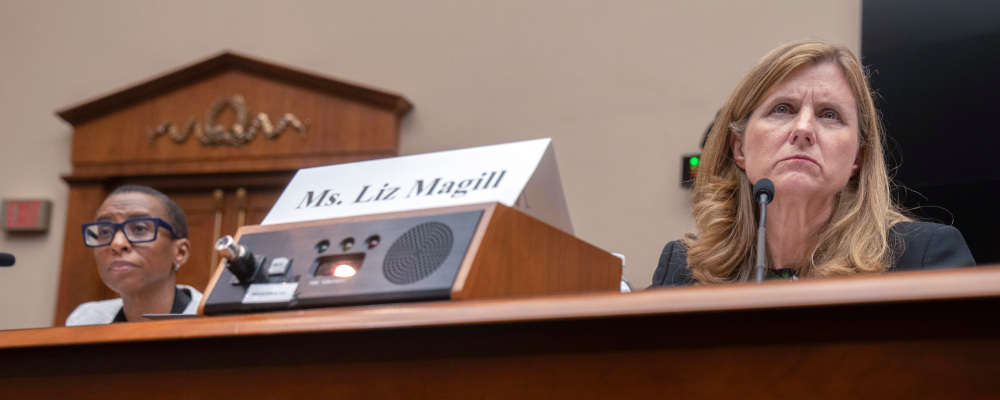In the latest Hub book review, Patrick Luciani reviews The Soul of Civility: Timeless Principles to Heal Society and Ourselves by Alexandra Hudson (St. Martin’s Press, 2023) and argues that while maintaining civility in society is all well and good, it will take more than that to push back against the forces determined to undermine our civilization.
More civility could help heal our broken world. That’s what Alexandra Hudson argues in her new book, The Soul of Civility. We should go beyond our selfish nature so that our social nature can flourish. For those who think civility and politeness are the same thing, they aren’t.
Politeness is the appearance of looking good and has little in common with the gentle virtue of kindness. Politeness comes nowhere near repairing a world divided by political conflict. It just smooths over our differences. Civility, on the other hand, forces us to be good by respecting others as individuals. As Hudson says, politeness is easy. Civility requires effort.
For the author, civility is essential for a civil society and a healthy democracy. Here, she draws on the wisdom and inspiration of thinkers and philosophers from Homer and Erasmus to Martin Luther King and Robert Putnam. The Soul of Civility isn’t so much a political book as a meditation on keeping an open mind while recognizing the dignity of others. There is little to disagree with as far as it goes.
When confronting others who hold to different politics, we should respect their “personhood.” Yet, such tolerance and understanding are hard, especially after the tragedy of October 7th in Israel and the following wave of antisemitism, much of it on college campuses. How greater civility might change that reality is hard to understand, particularly when higher education institutions have subordinated notions of civility to other values.
As a consequence, Hudson’s book seems out of step with the march of postmodernism and postcolonialism through our universities. Hudson never mentions these two ideas in her book, which is odd given their immeasurable damage to the practice of civility.
In the House of Representatives congressional hearing on December 5, the presidents of Harvard, MIT, and Penn cited their version of free speech as justification for not acting to punish or condemn those who advocate killing Jews, an incomprehensible stance given their duty to protect all students under their care. When Congresswoman Elise Stefanik asked whether advocating the genocide of Jews is hate speech, the presidents qualified their answers with the cryptic mantra—it depends on the “context” of the threats.
As postmodern ideas have come to dominate political ideology on campuses, the answers by the three presidents were not very surprising. A fundamental tenet of postmodernism is that the meaning of words and the use of language are slippery concepts without fixed definitions: any words’ exact meanings need to be contextualized and, therefore, subject to perpetual deferment.
The presidents blundered, thinking they were addressing a university faculty meeting or graduate seminar. They were at a congressional hearing open to the public, of whom most are unfamiliar with how academics understand language.
There is another reason the presidents were trapped. Postcolonial studies, as taught at universities, divide the world into victims and victimizers. It is asserted as fact that the main reason we have poverty between and within countries is the inequality of power among races caused by discrimination and exploitation.
When Hamas ventured out of Gaza to kill over 1,200 Israeli citizens, the question of guilt was certain to be “contextualized” based on the relative power of Jews and Arabs. As Palestinians are cast as poor and vulnerable, they are, by definition, blameless. Any retribution by the Israelis will be seen as disproportionate and illegal to the point of negating Israel’s right to self-defence.

The three presidents seemed more intent on not offending aggrieved groups and DEI constituents than on defending the rights of Jewish students. One would think that students should be kept physically safe but intellectually exposed to “dangerous” ideas, not the other way around. The presidents mistook the vacuous virtue of politeness as a substitute for harder requirements of truth and civility. Then again, Truth—which is Harvard’s motto—is an unstable concept that shifts depending on the “context.”
The blowback has already begun with the resignation of Liz Magill, president of the University of Pennsylvania. Others may follow as alums and members of Congress have their say and demand accountability. Words may be slippery in the academy, but in the real world, they have consequences. (The day after the hearings, Harvard President Claudine Gay has already repented and has now seen the Truth, or perhaps what she saw was her position slipping away.)
The Soul of Civility is a well-meaning contemplation on the need to get beyond our anger while respecting those we disagree with. But in today’s political climate, we are required to do more. We cannot allow the attributes of politeness to be a substitute for integrity, even when there is no easy comfort in confronting hard truths, judging intent, and taking up the responsibility to protect.
Recommended for You

Need to Know: Legacy media has a diversity problem

‘A celebration of the spirit of Alberta’: Ryan Hastman on the political, economic, and cultural importance of the Calgary Stampede

‘Can we actually be an independent country?’: Michael Ignatieff on the 60th anniversary of Lament for a Nation

Fred DeLorey: Why the NDP may be in even bigger trouble than we think




